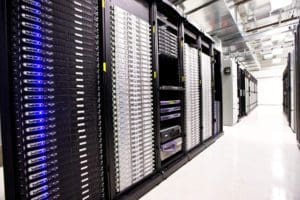Colocation data centres are transforming the way businesses manage their IT infrastructure, and EziBlank is at the forefront of this evolution. With our innovative blanking panels, you can enhance energy efficiency, streamline airflow management, and significantly reduce operational costs. Our solutions not only optimise your existing setup but also empower you to harness the full potential of your data centre. Discover how EziBlank can elevate your colocation strategy and drive sustainable growth for your business.
What is a Colocation Data Center?
In the rapidly expanding world of digital infrastructure, colocation data centres are emerging as a preferred choice for businesses seeking reliable and scalable IT solutions. These facilities offer companies the opportunity to house their servers and networking equipment in a shared space, providing robust security, efficient cooling, and continuous power supply. By leveraging the shared resources of a colocation data centre, businesses can focus on their core operations while ensuring that their IT infrastructure is both resilient and cost-effective.
Read More
What are the different types of data centers?
Data centres are the backbone of modern digital operations, and they come in various forms to meet diverse needs. From enterprise data centres that are privately owned and operated by a single organisation to colocation facilities where multiple businesses share the space, each type is designed to address specific operational requirements. Hyperscale data centres, with their vast capacity, support massive cloud computing needs, while edge data centres bring processing power closer to the source of data generation, reducing latency. Understanding these different types of data centres is essential for businesses looking to optimise their digital infrastructure.
Read More
The Ultimate Guide to Data Centers
Data centres are the backbone of the digital world, housing the servers and networking equipment that power everything from websites to cloud computing services. A well-designed data centre must balance performance, efficiency, and security, with key considerations including location, infrastructure, power supply, cooling systems, and security measures. Effective airflow management, such as the use of blanking panels and hot/cold aisle containment, is essential for maintaining optimal temperatures and reducing energy consumption. Additionally, data centres must incorporate robust backup systems, such as uninterruptible power supplies (UPS) and generators, to ensure continuous operation in the event of power failures. As businesses increasingly rely on digital infrastructure, the role of data centres continues to expand, making it crucial to optimise their design and operations for reliability, efficiency, and scalability.
Read More
